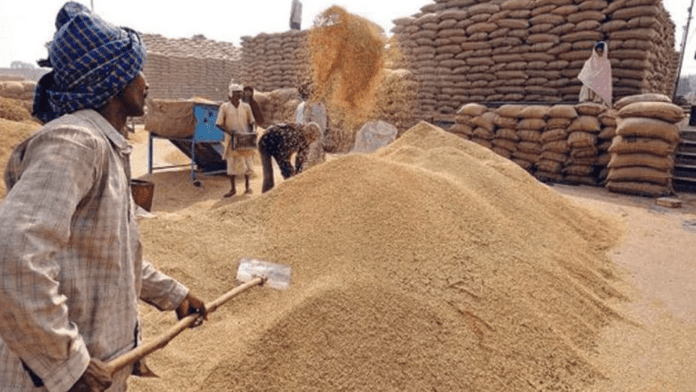The Union government of India is planning a large foodgrain-procurement operation in 2023-24, which is expected to be one of the biggest in the country’s history. The aim of this operation is to boost food security, which is a critical issue for India, given that many of its citizens still struggle to access enough food on a regular basis.
Foodgrain procurement refers to the process of the government purchasing foodgrains from farmers at benchmark floor rates known as minimum support prices (MSP). The government has set these MSPs to ensure that farmers receive a fair price for their crops, and to protect them from exploitation by middlemen.
Arun Aggrawal of Comtrade, said, “This signals a policy of focusing on the country’s food security, which in recent years had shifted to exports because of back-to-back bumper harvests,”
There are several reasons why the Union government is expanding its procurement operation. One of the main reasons is the geopolitical uncertainties that have arisen in recent years, which have made it more difficult to rely on global food markets. Additionally, the COVID-19 pandemic has disrupted global supply chains, leading to shortages of some food items. Finally, state-owned cereal stocks have been depleted due to factors such as extreme weather and patchy monsoons.
To address these challenges, the government has directed the Food Corporation of India (FCI) to work with states to increase procurement centers. These centers are aggregation points where farmers can sell their crops to the government. Some states also make their own procurement to distribute grains on behalf of the Centre, handing over any surplus to the FCI. The FCI will need to rely on “internal and extra budgetary resources (IBER)” to cope with the expansion of procurement. This may include borrowing or cash advances, as budget documents have already indicated.
The budget for 2023-24 has allocated ₹1.97 lakh crore for the food subsidy bill, which is the amount of money the government will spend on food subsidies. However, the government estimates that this may be insufficient, and has indicated that it will make up any shortfall. The final expenditure on food subsidies is expected to be higher than the allocated amount.
To improve the procurement process, the government has also instructed the FCI to enhance its centers and warehouses in states where they have traditionally been weak, such as Uttar Pradesh. Some states, such as Punjab and Haryana, already have a widespread procurement network in place.
Overall, the Union government’s large-scale foodgrain procurement operation is aimed at strengthening India’s food security, which is a key priority for the country. By ensuring that farmers receive fair prices for their crops, the government hopes to support the agricultural sector and improve food availability for all citizens.





